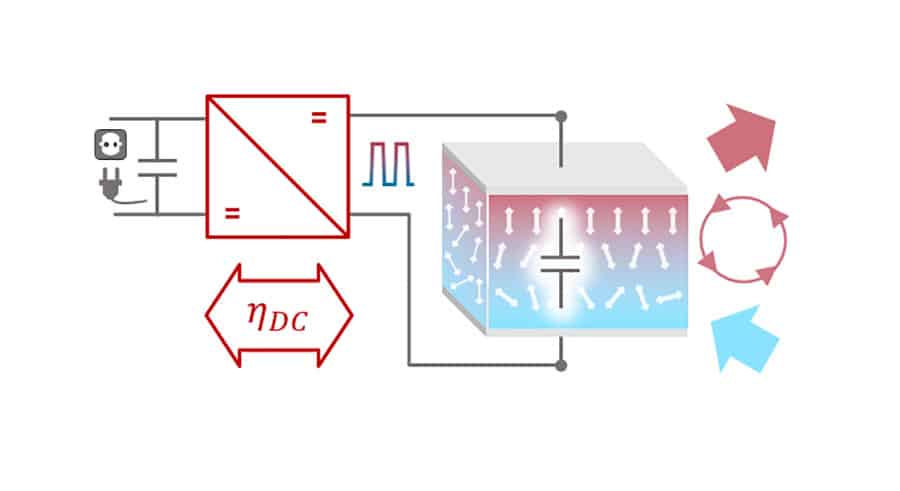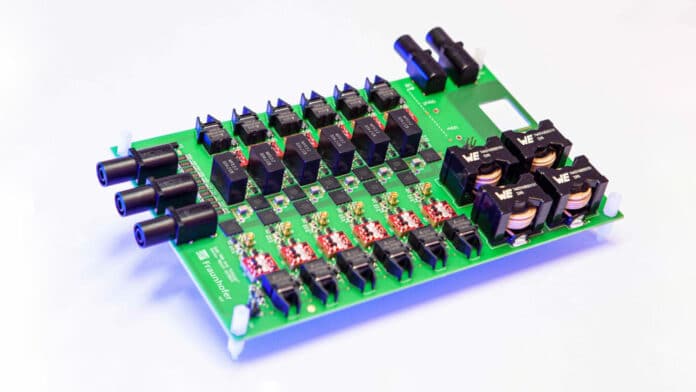Heat pumps have received considerable attention in recent years. They are extremely efficient systems for heat generation and play a crucial role in the global transition to secure and sustainable heating. Powered by low-emissions electricity, heat pumps can offer a cost-effective and environmentally friendly solution for heating homes and buildings.
To increase the efficiency of heat pumps, researchers in the Fraunhofer lead project “Electrocaloric Heat Pumps” (ElKaWe) are working on the development of electrocaloric heat pumps that do not require compressors and are expected to achieve higher efficiencies in the future.
Existing heat pumps achieve only about 50% of the physical Carnot limit, while the electrocaloric heat pump can theoretically achieve 85%. The efficient electrocaloric heat pumps ultimately also depend to a large extent on the efficiency of the integrated power electronics.
In the ElKaWe project, Fraunhofer researchers have developed and optimized power electronics for electrocaloric heat pumps. They have succeeded in implementing an ultra-efficient circuit topology for voltage converters based on gallium nitride (GaN) transistors, achieving an electrical efficiency of 99.74% in the electrical power path.

The GaN-based multilevel DC-to-DC converter thus sets global standards and far exceeds the previous state of research of less than 90% conversion efficiency for electrical control of these novel heat pumps.
“Our ultra-efficient power electronics make it realistic for the first time to achieve well over 50% of the maximum theoretical coefficient of performance with electrocaloric heat pumps, even at the system level. There is still a lot of research to be done, but in the future, this technology could become a more efficient and completely emission-free solution for heating and cooling,” says Dr. Stefan Mönch, a researcher in the field of power electronics at Fraunhofer IAF.
“Essential for realizing a high coefficient of performance of electrocaloric heat pumps is a very high efficiency in materials, electronics, and heat transfer. If you get all this under control, electrocaloric has enormous potential,” adds Dr. Kilian Bartholomé, project manager of ElKaWe.
The project work aims to demonstrate the potential of the technologies for future efficient and emission-free heating and cooling applications. Ultra-high efficiency of power converters thus paves the way towards future electrocaloric heat pumps of competitive system performance.
Journal reference:
- Stefan Mönch, Richard Reiner, Kareem Mansour, Patrick Waltereit, Michael Basler, Rüdiger Quay, Christian Molin, Sylvia Gebhardt, David Bach, Roland Binninger, and Kilian Bartholomé. A 99.74% Efficient Capacitor-Charging Converter using Partial Power Processing for Electrocalorics. IEEE Journal of Emerging and Selected Topics in Power Electronics, 2023; DOI: 10.1109/JESTPE.2023.3270375
